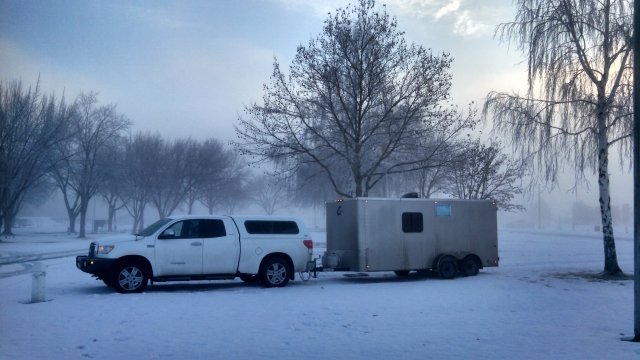We have camp during the winter but the temps have been -1 to -3 Celsius. I have 33 ft 89 bounder and see lots of concerns about winter camping and not using water. We are going camping here in December and the temps will be -10 to -15 Celsius. RV fresh water tank and water pump are in one cargo hold and pipe leads up into cupboard crawl space. They run along the passenger side from the kitchen sink to the hot water tank above the floor but under the cabnets. At the hot water tank they pop into the cargo hold with the gray and black water tank and cross over to the driver side and up into the bathroom. The furnace duct tubes run along side of all the water pipes. Also the two cargo holds have furnace vents that blow heat into the holds.
To me this seem like a good design by bounder to keep pipes and tanks from freezing. The furnace and hot water tank will be on while we are camping. We wont have direct water line or sewer hose hook ups but will have power. Do you think the RV can handle the temps?
To me this seem like a good design by bounder to keep pipes and tanks from freezing. The furnace and hot water tank will be on while we are camping. We wont have direct water line or sewer hose hook ups but will have power. Do you think the RV can handle the temps?

